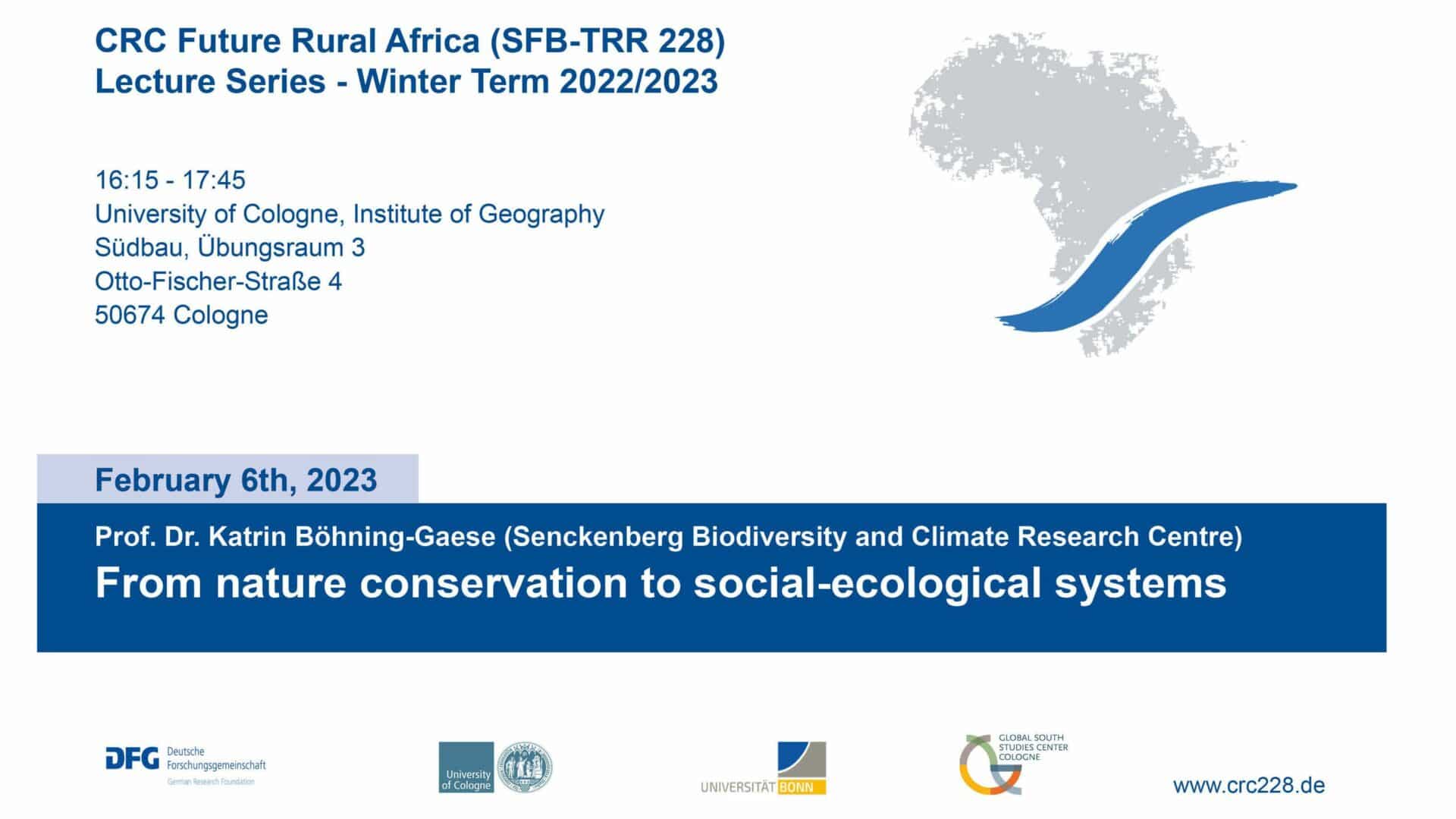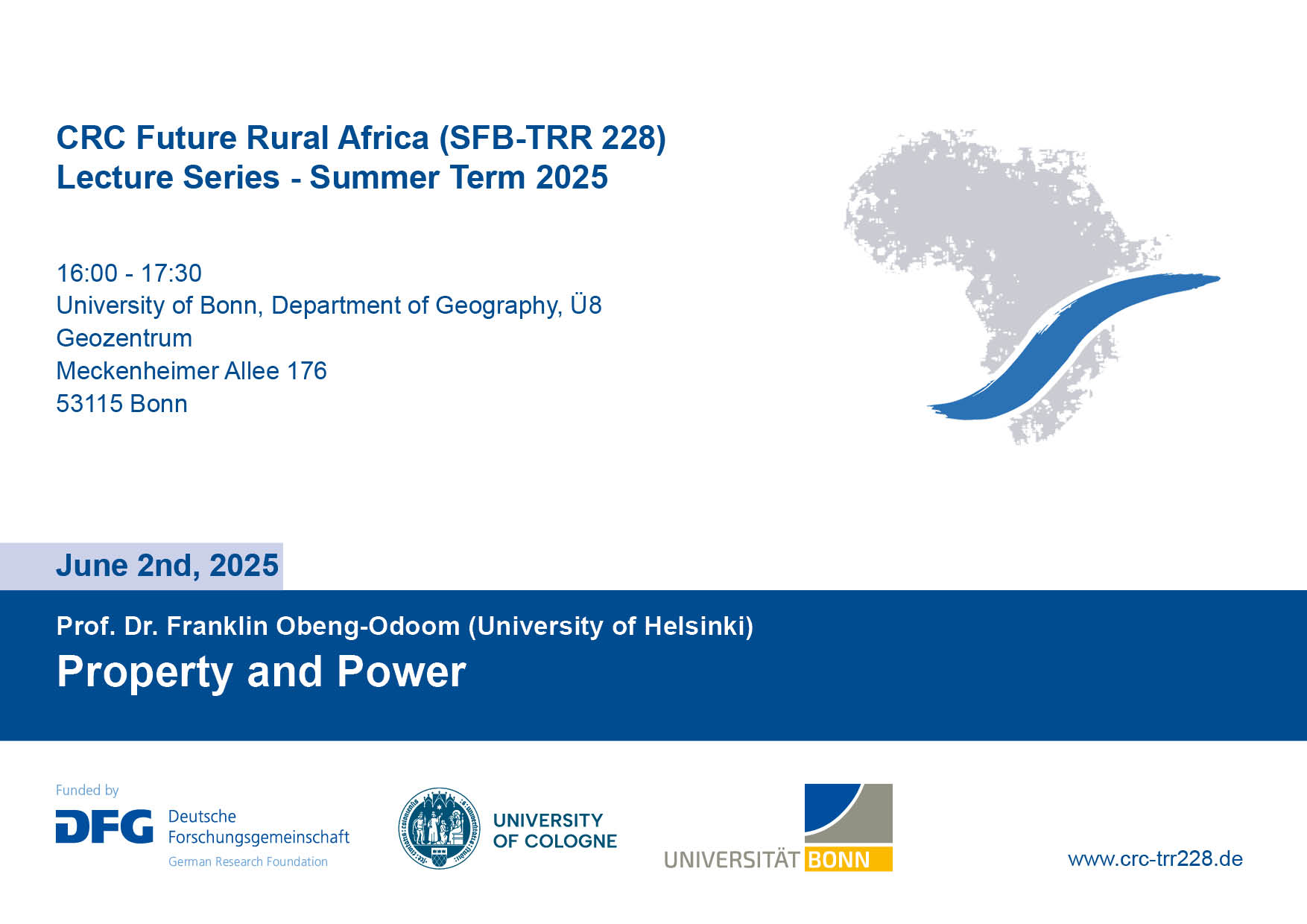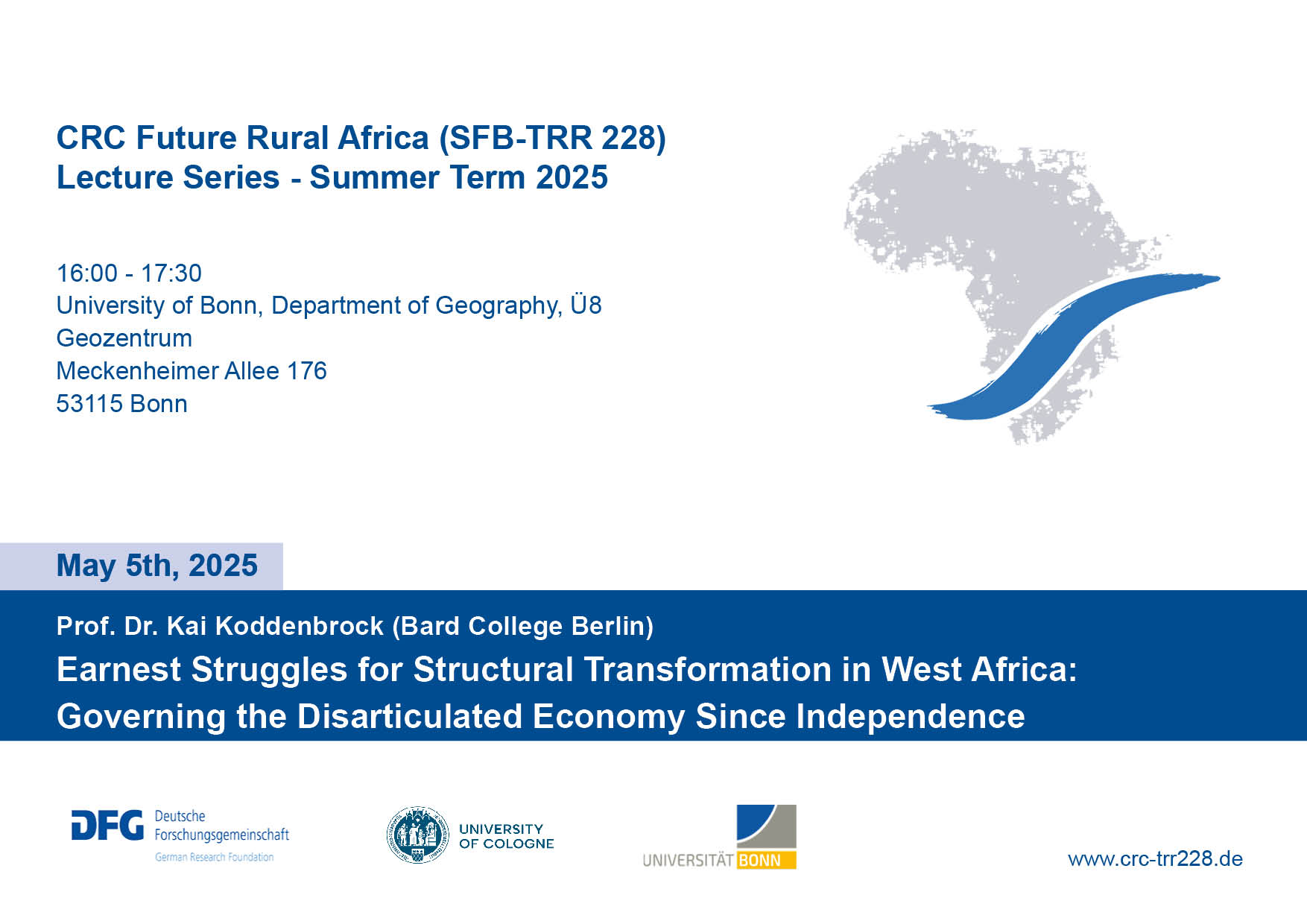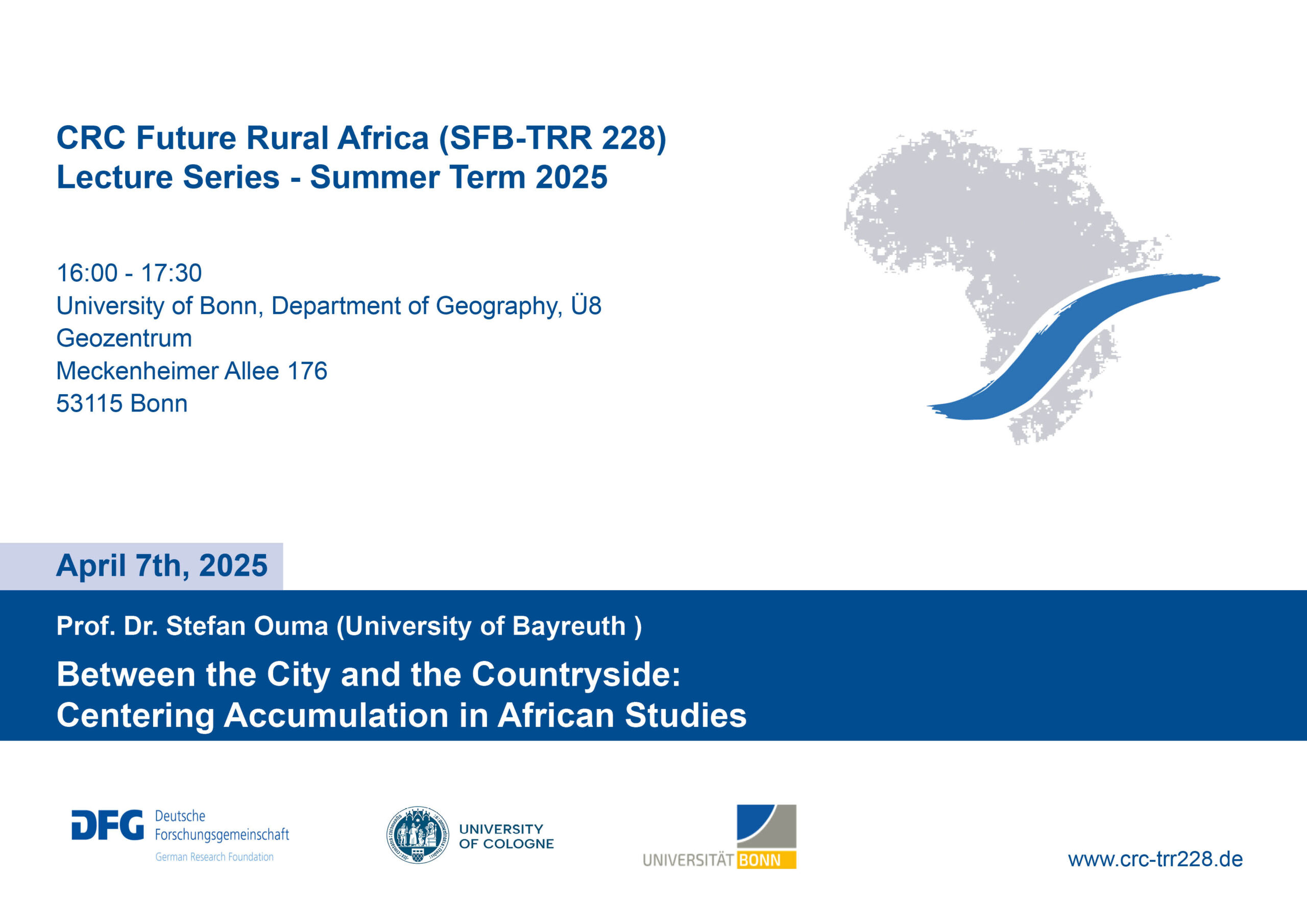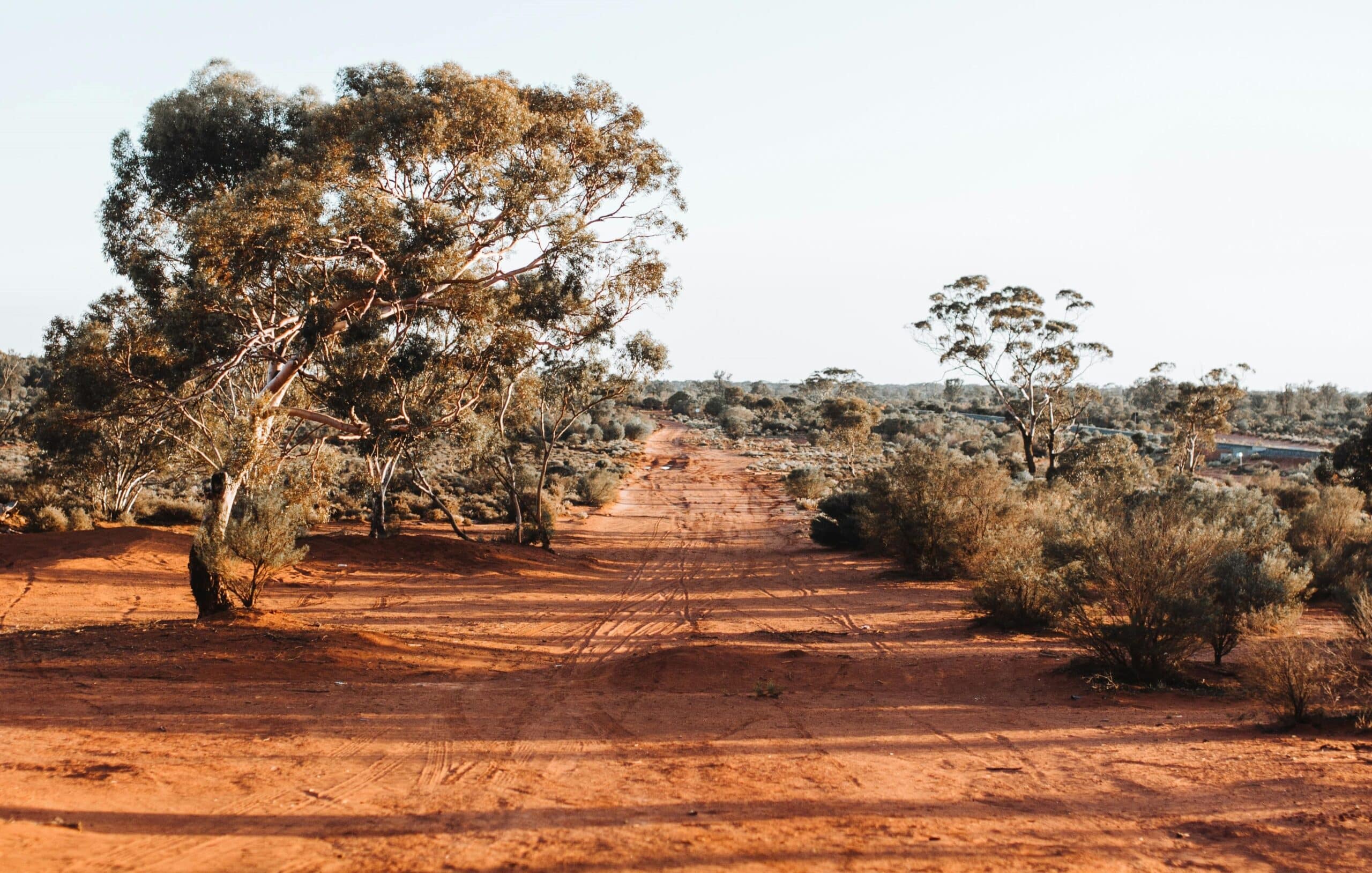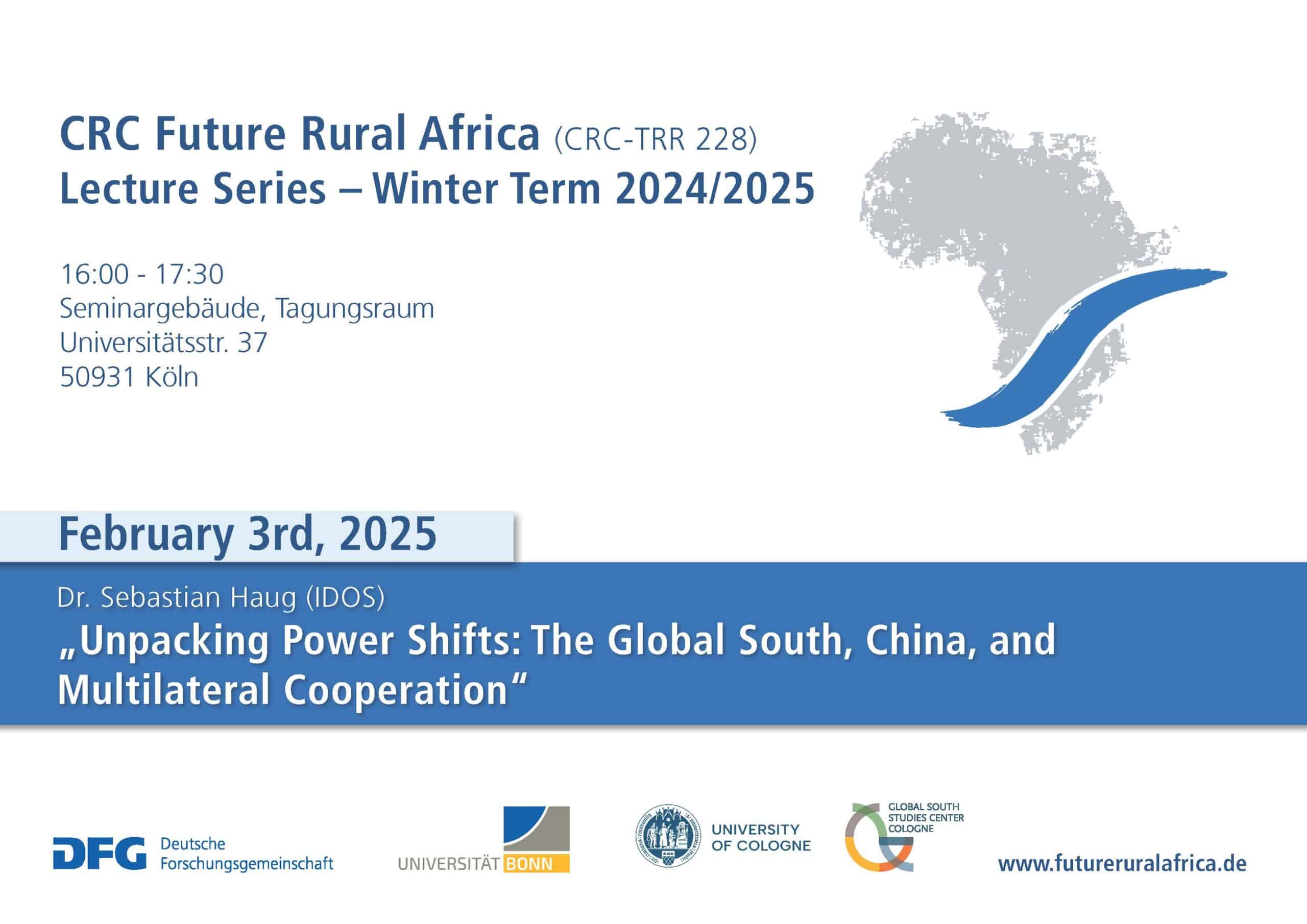Mon | Feb 6, 2023 | 16:15 – 17:45 CET
CRC-TRR 228 Future Rural Africa Public Lectures Series:
Katrin Böhning-Gaese (Senckenberg Biodiversity and Climate Research Centre)
From nature conservation to social-ecological systems
In the Anthropocene, the age of humans, humans are increasingly overriding many ecological, atmospheric and geological processes in the Earth system. This results, among others, in biodiversity loss. According to the World Biodiversity Council IPBES, one million of the estimated 8 million species on Earth are threatened by extinction. We are facing the 6th mass extinction in Earth’s history. How does nature conservation address these global challenges? Nature conservation is based on a normative foundation, with considerable historical development in framing, key ideas and accentuated values. In the 1960-1990, emphasis was placed on the intrinsic values of nature, on protecting species and habitats. Since then, more focus was put on instrumental values, with expanding research on the importance of nature for people, on ecosystem services. Since 2010, this approach has been extended to the relational values of nature, with an increase of studies on (coupled) social-ecological systems. One such example is the DFG Research Unit on the social-ecological system of the Kilimanjaro, that investigates the role of nature for human well-being. In parallel, research on how to enable change and stop biodiversity loss has developed considerably. Biodiversity science is now working with future scenarios of biodiversity, to allow for identifying policies and actions to stop biodiversity loss and bend the curve for future recovery. I will present two main types of approaches, firstly the international implementation of new, large protected areas, the Legacy Landscapes, and secondly, the social-ecological transformation of agricultural landscapes and food systems. In summary, I will demonstrate that a social-ecological approach is necessary, to better understand the complex interactions between people and nature. At the same time, transformative change is required to bend the curve of biodiversity loss for the benefit of both nature and people.
Venue:
Südbau, Übungsraum 3
University of Cologne, Institute of Geography
Otto-Fischer-Straße 4
50674 Cologne

